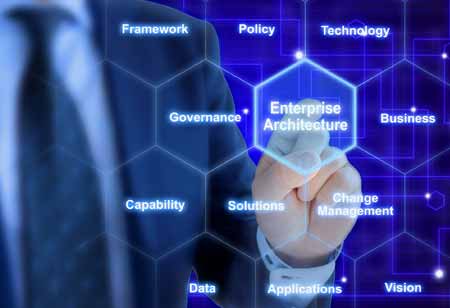THANK YOU FOR SUBSCRIBING
How Disruptive Technologies can Impact Enterprise Architecture
Digitization and automation of processes is rapidly becoming a trend amongst all businesses and is essential to a customer's journey and offer new and more efficient services

By
Apac CIOOutlook | Tuesday, June 02, 2020
Stay ahead of the industry with exclusive feature stories on the top companies, expert insights and the latest news delivered straight to your inbox. Subscribe today.
Digitization and automation of processes is rapidly becoming a trend amongst all businesses and is essential to a customer's journey and offer new and more efficient services
Fremont, CA: Technology is a constant in every business, and yet it keeps varying from time to time. New technologies emerge every day and are quickly becoming the key to future businesses. While companies invest heavily in new technologies, they also need to evolve with the changing environment and integrate the latest technologies into their business plans. In the modern world, an enterprise architect needs to understand the latest trends in technology and its working to ensure that applications, systems, and tech support the business.
Company Digitization
Digitization and automation of processes is rapidly becoming a trend amongst all businesses and is essential to a customer's journey and offer new and more efficient services. Also, the shift to an API based architecture supports exchanges and enables a flexible architecture. The integration of an agile approach has become essential for organizations in helping them to tackle the changing market conditions and plan for growth and expansion opportunities.
With customer journey maps in the picture, enterprise architects can take an outside-in approach by mapping customer touchpoints to the organization and link them with internal business processes. This can help envision the customer experience first before modeling business processes. This is vital to modernize the existing approaches and subsequently automate customer journeys.
See Also: Top Voice Recognition Solution Companies
Data Management
Data is an integral part of every organization. Apart from collecting, storing, organizing, and protecting data, organizations need to be able to analyze data and identify trends to boost business innovation. Established architectures help to provide clarity and ease of understanding in the multitude of data collected, processed, and managed by the company. This is made more accessible by enterprise architecture as it establishes data dictionaries, maps semantic models to build a business representation of data exchanges, and models existing databases in a logical way.
Artificial Intelligence
Artificial Intelligence has become an essential part of every business. Over the last few years, it has become one of the most disruptive technologies known. Voice recognition and recommendations based on previous choices are just two of the applications of AI. Companies are quickly adopting technologies like voice recognition and intelligent chatbots. These applications can help employees perform repetitive tasks and allow them to use their time more efficiently. The existing models need to evolve to integrate these technologies into current business models, especially those related to customer interactions. Enterprise architecture will facilitate this change by providing an overall strategic vision to decision-makers that range from business planning to technology.
See also: Top Artificial Intelligence Companies





